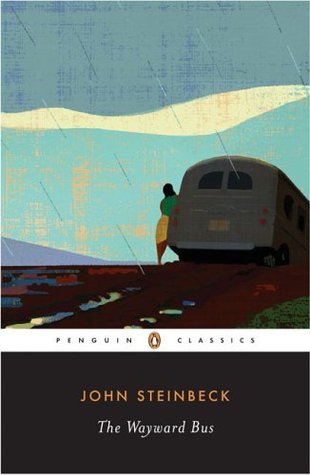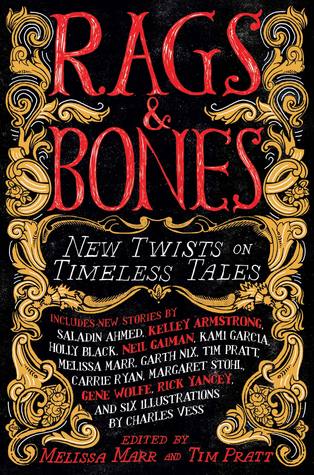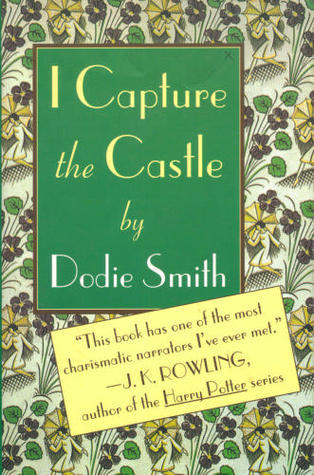 Forty-two miles below San Ysidro, on a great north-south highway in California, there is a crossroad which for eighty-odd years has been called Rebel Corners.
Forty-two miles below San Ysidro, on a great north-south highway in California, there is a crossroad which for eighty-odd years has been called Rebel Corners.The Wayward Bus is one of Steinbeck's least known novels, yet it is a beautiful and compelling story. Not a whole lot happens, and the book is slim, yet it's another example of Steinbeck's powerful writing and his ability to capture something about America and Americans. The setting is a wayside establishment called Rebel Corners, and the story revolves mainly around the people who live there and the people, "the lost and lonely, the good and the greedy, the stupid and the scheming, the beautiful and the vicious", who pass through the town, clashing and colliding and revealing something about humanity. Despite the lack of action, I had no desire to put the book down at first because every paragraph showcased Steinbeck's masterful prose and characterization skills.
The first chapter, setting everything up, was by far the best. After that, the book was less absorbing, though still good. Perhaps the fact that not much of interest actually happened did drag me down; the real interest is all in the way the passengers interact with each other, and the tensions that arise between friends and strangers. Often times these tensions are overtly sexual. I was surprised by howfrank The Wayward Bus was; it explicitly talks about desire and longing and a more ugly, brutal side to it all. Steinbeck doesn't mince words; I suppose the difference in this novel is a sign of the shifting times. From what I remember of other earlier Steinbeck novels, it's not so explicit, more hinted at. Like, Steinbeck usually makes references to "cathouses" and all of that, but in this book he spends a lot of time writing about men staring at women's legs and about this particular woman, "Camille", who has such power over all of the men. It's not just that she's beautiful; there's something magnetic about her.
There's a great deal of description in The Wayward Bus, yet somehow it also feels sparse and spare. The characterization and the description are brilliantly crafted, bringing the scenes to life, scenes that seem like they could actually happen somewhere out in the California countryside. There's just so much detail, and Steinbeck does a great job of portraying a certain part of America, and the different people who collide in it. There's also one passage at the very beginning of the novel that brilliantly shows the disparity between some exalted perception of a woman held by the media and a real woman: "The walls, where there was room, were well decorated with calendars and posters showing bright, improbable girls with pumped-up breasts and no hips - blondes, brunettes and redheads, but always with this bust development, so that a visitor of another species might judge from the preoccupation of artist and audience that the seat of procreation lay in the mammaries. Alice Chicoy...who worked among the shining girls, was wide-hipped and sag-chested and she walked well back on her heels...She was not in the least jealous of the calendar girls and the Coca-Cola girls. She had never seen anyone like them, and she didn't think anyone ever had." It was quite well-written and gave me pause, because this section is scarily relevant to today. You see so many images in all medias (books, alas, are not exempt) where there are improbably skinny, improbably proportioned women, and that just doesn't reflect real women who live their lives. The harshness of the people's lives is also shown; it's nothing like the gleaming, bright posters that are tacked on the walls. Thoughts?
Perhaps uniquely American is the phenomenon of just a single building on a road as a stop for people traveling vast distances through the country, and that is where The Wayward Bus begins, at a shop that is kept where passengers can buy food. From there, the group of characters expands.
The later sections get really disturbing in terms of their violent nature, and a creeping sense of horror pervades them. There's no huge tragic event like in Of Mice and Men, but overall the latter half of the book was just kind of disgusting. That didn't make the novel bad, but perhaps not as enjoyable as it could have been.
This is a huge cliche, but John Steinbeck is one of those writers who is able to convey the "American spirit" and also the American dream. Through vivid prose and sharp commentary, the American landscape is illuminated. It's not just America though; many of his novels, including The Wayward Bus, offer commentary on humanity in general.
The bus is one example of an excellent and oft-used device to have an unlikely group of people from different backgrounds stuck in a confined together. The passengers are all quite different, and their having to talk to each other brings out lots of excellent tension.
The characters are all really flawed, and I disliked many of them, although I also felt sorry for many of them too. In typical Steinbeck fashion, the ending isn't really a resolution, although it is a parting of the ways. However, there's a lot that's not wrapped up (although really, there wasn't a whole lot to be resolved in this one). The characters are in sight of their destination, and they all go their separate ways after a brief interlude.
The Wayward Bus didn't offer anything earthshattering, and it wasn't a hugely momentous or impactful novel, but I did enjoy many elements of it.
261 pages.
Rating: 3.5 stars.




